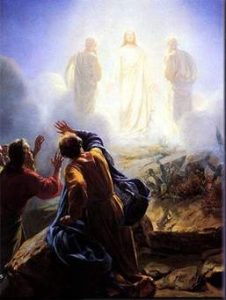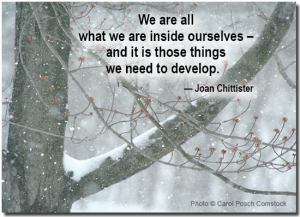First Reading Exodus 17:3-7 Second Reading Romans 5:1-2,5-8
Gospel John 4:5-42
This unnamed but well-known woman experienced a major change in her life. She was engaged in the longest recorded conversation with Jesus. The most starting aspect of the conversation is that it happened at all. Jesus, an observant Jew, was expected to avoid conversation with women in public. Move than that, to begin with, the animosity between the Jews and the Samaritans would have prevented the conversation in the first place. The woman herself mentions it, “How can you, a Jew, ask me, a Samaritan woman, for a drink?” Yet Jesus not only converses with her, he also asks her to share her drinking vessel, an action that, according Jewish law, makes him unclean.
The high point of the conversation is when Jesus reveals himself to her as the Messiah. As this, the woman becomes a disciple. She, an outcast and not a Jew, returns to her town to round up people to come meet Jesus for themselves. This personal encounter has both a social and an educational dimension. The woman became an evangelist to her own people and Jesus uses the incident to incident to teach the disciples a lesson in mercy.
Don’t you love how Jesus gently converses with this woman! In the view of his disciples she was the wrong gender, from the wrong place, and lives a wrong life. But, this day, Jesus is tired and thirsty. Then, this lady (though her neighbors would never have called her a lady) approaches. No one went to the well at high noon – it was just too hot. She is skittish at the sight of a strange man. She had to get her water when she thought no one else would be around. She’s grown accustomed to suffering two extremes: guys’ catcalls as she walked down the road or she’d been ignored. Her defenses were up. She wasn’t going to take any guff (she may have thought another word for it). But, she wasn’t stupid; she was gutsy. Despite the taboo of tradition, she talked back to Jesus. And Jesus in the words of Psalm 34 “watched over the righteous and listened to her cry; He rescued her from her troubles and drew near to this one who was discouraged; He saved her who had lost hope.” “Give me a drink.”
The exchange continued between the two of them. He offered her living water. This must have sounded GREAT! She wouldn’t have to go to that well anymore! She wouldn’t have to suffer the jeers, the whispers, the stares and finger-pointing. She took in all Jesus said, pondered his words, digested it and then insisted the townspeople listen to her. It was such an amazing, remarkable experience she couldn’t keep it to herself. She ran shouting: “Come, see a man who told me everything that I did. Can this be the Christ?!“ In the end, they answered for themselves, “This is indeed the Savior of the world.”
In Joan Chittister’s blog this week there is an excerpt from her book ILLUMINATED LIFE. Joan reminds her readers that there is a lot more involved than may at first appear in making a soul-shaking change in our lives. In Joan’s words:
Changing the way we go about life is not all that difficult. We all do it all the time. We change jobs, states, houses, relationships, lifestyles over and over again as the years go by. But those are, in the main, very superficial changes. Real change is far deeper than that. It is changing the way we look at life that is the stuff of conversion.
Metanoia, conversion, is an ancient concept that is deeply embedded in the monastic worldview. Early seekers went to the desert to escape the spiritual aridity of the cities, to concentrate on the things of God. “Flight from the world”—separation from the systems and vitiated values that drove the world around them—became the mark of the true contemplative. To be a contemplative in a world bent on materialism and suffocated with itself, conversion was fundamental. But conversion to what? To deserts? Hardly. The goal was purity of heart, single-mindedness of search, focus of life.
We do not need to leave where we are to become contemplative. “Flight from the world” is not about leaving any specific location. (Remember the Samaritan woman didn’t leave town – she ran back to the villagers. Joan continues:) “Flight from the world” is about shedding one set of attitudes, one kind of consciousness for another. We simply have to be where we are with a different state of mind. We have to sit at home … with the good of the whole world in mind…
What needs to be changed in us? Anything that makes us the sole-center of ourselves. Anything that deludes us into thinking that we are not simply a work in progress… all of those professional degrees, status, achievements, and power are no substitute for the wisdom that a world full of God everywhere, in everyone, has to teach us.
To become a contemplative, a daily schedule of religious events and practices is not enough. We must begin to do life, to be with people, to accept circumstances, to bring good to evil in ways that speak of the presence of God in every moment.
[from Illuminated Life by Joan Chittister]







